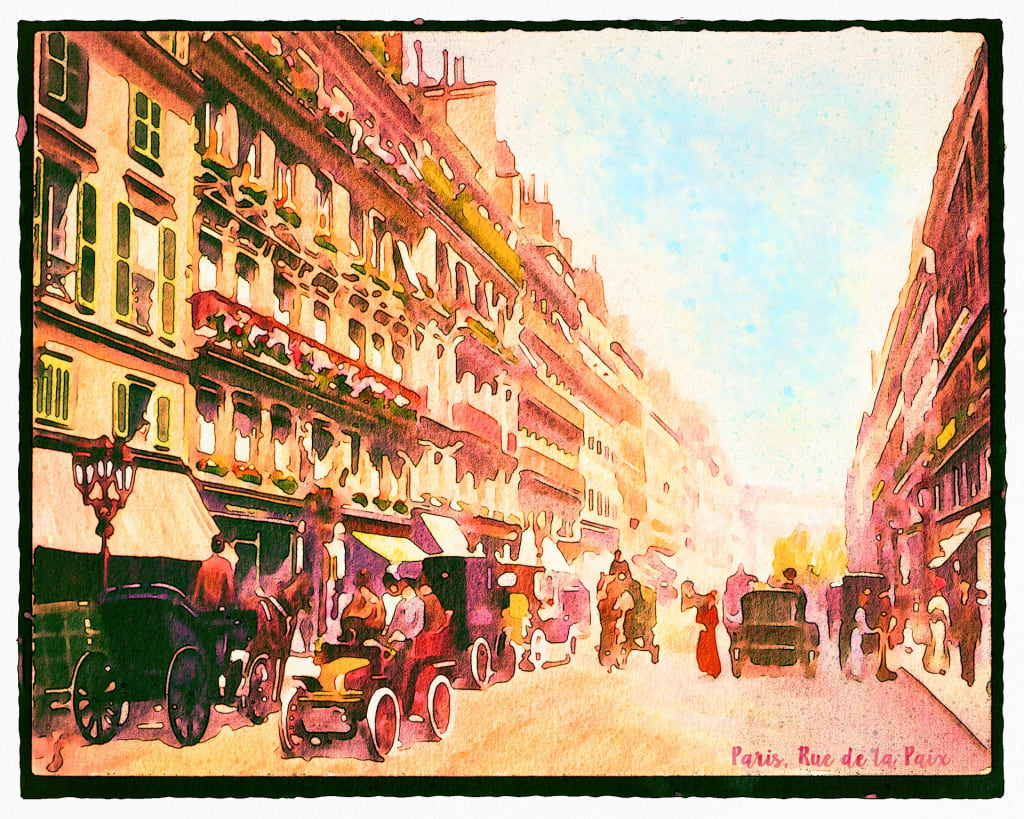The Lost Generation
Part 1: A historical investigation of Americans in Paris in the 1920's.

“That’s what you all are. You are a ‘lost generation’. You have no respect for anything.” Gertrude Stein told Ernest Hemingway, repeating what she heard an angry Mechanic tell his young assistant, a WW1 vet. As she continues to rant about his generation, he replies “Who is calling who a ‘lost generation’?”
‘Lost Generation’. A phrase that not only defined those who lived between World War one and two, but that resonates through time to be used against every older generation to the younger. However, in this context to the average American artist living in Paris in the 1920’s, it’s a badge they wore with honor. The biggest war the world had ever seen just ended, the American Economy had skyrocketed, living costs in Paris were lower than dirt, and the City of Light had not only become the cultural hub for the fashionable and artistic but for peace and prosperity. What lead to this decade of American prohibition and Parisian parties?
On June 28th 1914, Archduke Franz Ferdinand was assassinated by a Serbian terrorist named Gavrilo Princip. Less than two months after this event, the world has begun to take sides in a war that would redefine everything. By April 1915, Germany has begun to use Chlorine Gas on the battle field which kills thousands of soldiers. This is the first instance in history to use chemical warfare. On May 7th, 1915, the Germans sink the Lusitania off the coast of Ireland, a civilian passenger ship that carried 1,200 people. After several months of other boats being sunk for the War, submarine warfare against passenger liners stops completely. When England invades France to combat the Germans, this is also the first time we see Trench Warfare.
America doesn’t enter the War until April 6th, 1917 when Congress approves the Declaration of War against Germany by President Wilson. While Suffragists supported President Wilson, he started a War instead of trying to get women’s right to vote. His campaign slogan was ‘Vote for the man who kept us out of war!’ and three months after he takes the oath of office, he asks Congress to enter the War. The war was a huge topic in the States, Houdini even wrote pamphlets of magic tricks to hand out the soldiers.
In December 1917, Prohibition passes into law as the 18th amendment and bans all manufacturing, transport, and sale of all intoxicating liquors. Contrary to popular belief, the idea of banning alcohol was not new at this time. Several states had passed and repealed some type of ban sine the 1820’s. By the beginning of the Civil War, almost every state had tried a version of Prohibition and had repealed it.
When Prohibition became law, it had the opposite effect that the Government intended. The ‘Noble Experiment’ dubbed by the press was meant to reduce crime, bring down corruption, solve social problems, reduce taxes, and improve overall health and hygiene. The law was largely supported by religious groups with ‘family values’. Advertisements started popping up stating that alcohol caused domestic violence and gangs. Meanwhile, crime started becoming organized with bootleggers who were selling booze under the table. Alcohol consumption increased and became dangerous to drink because of the way some people made it; courts and prisons overflowed by the amount of arrests made. It also removed a huge tax revenue source and Government spending actually increased. Those who couldn’t afford what the bootleggers were selling turned to marijuana, opium, patented medicines, and other drugs.
As the war continued, chemical use became more and more dangerous. In order to combat it, Congress approved the United States to study and use our own chemical warfare on June 28th, 1918. To fight fire with fire is one way to put it, or perhaps a better metaphor would be an eye for an eye makes the whole world blind. The war officially ended five months later on November 11th at 11am. The war ended with a phenomenal number of 10 million soldiers dead and 10 million civilians dead.
Four empires collapsed from the War: Ottoman, Austro-Hungarian, German, and Russian. The war gave independence to Poland, Finland, Estonia, Latvia, and Lithuania. Europe would never be the same again. After the war, so many men had been killed, women in Germany had a 1/3 chance of getting married.
World War 1 officially ended on June 28th 1919 when the Treaty of Versailles was signed by the Allied Powers in Paris. It had a heavy price for Germany though, who had little say in the Treaty. Germany had to agree to pay for reparations under the Dawes and Young Plan, although the plans were cancelled in 1932, Germany was still paying reparations until 2010.
While each country had their own ideas for Germanys’ future, the French wanted harsh restrictions placed so they couldn’t wage war again. The British and Americans weren’t as harsh, they were afraid that such restrictions would cause another war. For the next five years, the French and Belgians tried a militarized approach to enforce the Treaty when the United States Senate couldn’t approve it right away. In 1922, the French occupied the Ruhr which Hemingway called a pretext to World War 2.
The people living between the two biggest wars in human history, they were the lost generation. They had survived an almost unimaginable chapter in history, a World War. They were exposed to the Spanish Influenza which rivals the Plague, thousands of soldiers suffered through the first bout of chemical warfare, and people were struggling how to move on when the Victorian Era of living came to an end. The definition of life was changing, not just for the poorer classes but for the rich too. In the United States, businesses bloomed under the Administration of three conservative presidents who favored private business expansion over the good of the whole market. Music changed and became more upbeat, with ‘let’s misbehave’ by Irving Aaronson booming from every club at night and bootlegged liquor practically raining from above. Fashion changed quite drastically from corsets and bustles to short skirts and bobbed haircuts, the time of Coco Chanel was brewing and about to take the world by storm. Although some say that the morals became looser when the skirts did.
The world was most definitely changing because of the Great War. Did the War change this generation? Maybe the war made this generation lost, maybe the War showed them how little power they hold against something of that titanic size. Maybe that’s what made them want to live a little when it finally ended.
About the Creator
Mae McCreery
I’m a 29 year old female that is going through a quarter life crisis. When my dream of Journalism was killed, I thought I was over writing forever. Turns out, I still have a lot to say.






Comments
There are no comments for this story
Be the first to respond and start the conversation.